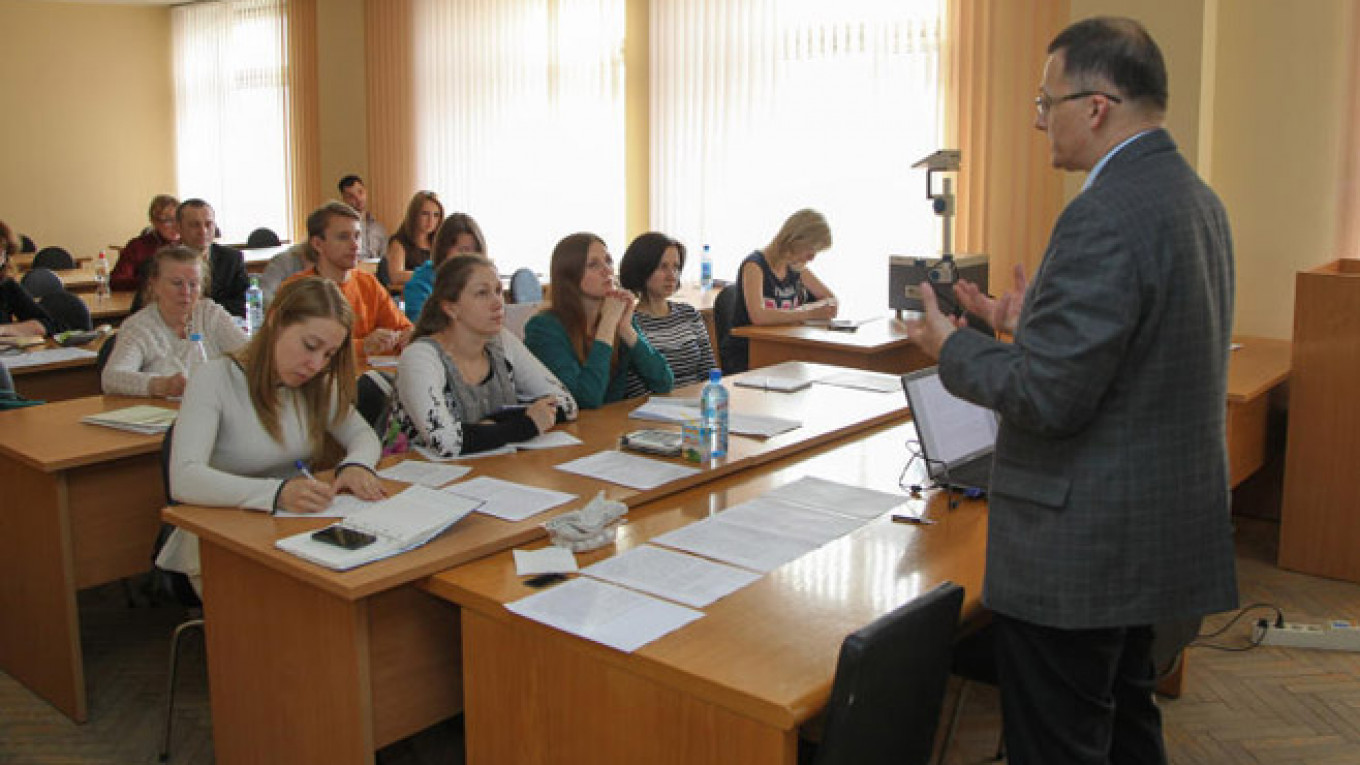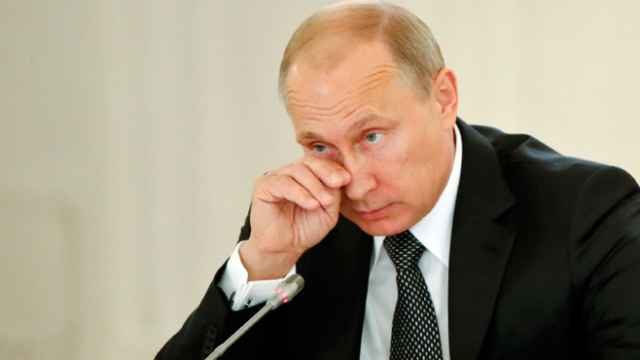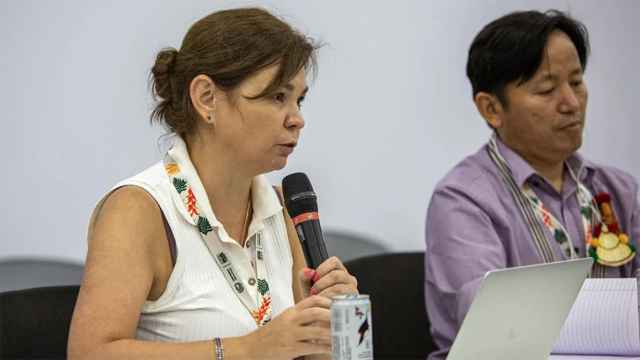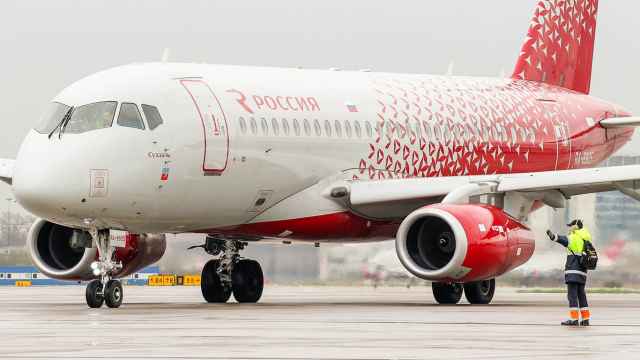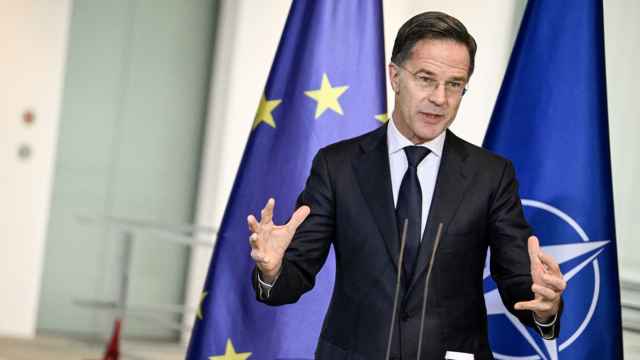The professional future is bright in Russia, where space geologists and airship constructors will be among the most in-demand professionals by the 2020s, according to an atlas of Russia's future job market recently published by Skolkovo's Moscow School of Management.
But whether Russia will be churning out droves of blimp-builders by 2025 in anyone's guess.
Russia's education system — which historically spawned a handful of Nobel laureates and produced such achievements as the world's first manned spaceflight — has had a rough ride in the two post-Soviet decades, struggling with underfunding and non-stop shakeups.
Funding is less of a problem now, but money has not solved most structural problems, said educational professionals interviewed by The Moscow Times.
The victory of bureaucrats over teachers, a lack of modern-minded employees and international isolation were listed by experts as the trifecta of Russian educational problems.
"We need to put the horse before the cart in education," said Alexei Sitnikov, deputy director of the SkolTech institute near Moscow. "But mentality is hard to change."
Throwing Money at the Education Problem
As of September, Russia has about 1.4 million teachers at the kindergarten, grade-school, high-school and university levels, and 22 million students, according to official statistics.
Federal spending on education surged from 37 billion rubles in 2000 ($1.3 billion) to 500 billion rubles ($15 billion) last year. Dollar figures here and below use exchange rates from the relevant periods.
However, education spending stands to be slashed in the face of the economic downturn to 424 billion rubles ($8.6 billion) next year, or 4 percent of the federal budget.
Educational workers' wages have improved significantly in recent years, increasing from an average of 1,240 rubles ($44) a month in 2000, to 25,740 rubles ($690) as of first nine months of 2014, bringing their salaries up to par with the national average, according to official figures.
However, the salary boost should be taken with a grain of salt, as the money has generally been unevenly distributed, most of it going to school directors and not actual teachers, according to a study conducted by news site RBC.
Directors in Moscow were earning a monthly average of 200,000 rubles last year ($6,000), while teachers were earning a comparatively low 70,000 rubles (2,100), the study said last summer, though even the latter figure is above the average worker's salary in the relatively wealthy but expensive city.
Teachers — particularly in kindergartens, but also at the grade-school level — are routinely overworked. The government is doing little to ease the strain on teachers with a plan to increase the teacher-to-student ratio in schools by 2018 from the current 10.9 students per teacher to 13 per teacher.
But the news isn't all bad: The authorities have also been investing lavishly in computerization, including in village schools, said Irina Abankina, head of the Institute of Educational Studies at the Higher School of Economics, a respected state-run university in Moscow.
"They did change schools quite significantly," she said about Russia's education authorities.
But Alexander Privalov, an education expert who heads Russian weekly business magazine Ekspert, said in an interview that the windfall of petrodollars in the 2000s are to blame for the high-tech improvements, not good policy.
Teenage Underperformance
Decent funding has yet to translate into academic performance.
Russia is doing quite well at the grade-school level, scoring second among 49 countries in the latest global reading test for fourth-graders, PIRLS, in 2011. Only Hong Kong did better.
In the TIMSS math and science test for fourth- and eighth-graders the same year, Russia landed in the top 10 on all counts among 52 countries for the fourth grade, and the top 45 for the eighth grade.
But high school and beyond remain problem areas: On the 2012 PISA test for 15-year-olds, which checks students' math, reading and science skills, Russia ranked an overall 41st of 65 countries.
Russian universities fell from the Times Higher Education rating's top 100 in 2009, and have since been struggling to retain a position in the top 200.
"We have our islands of quality, such as math or science, but in general, our education is not very competitive globally," said Sitnikov of Skolkovo.
Under the Thumb of Bureaucracy
One problem is that teachers have completely lost influence among officials, experts said.
Every step of the teaching process is mired in paperwork, the filling out of which takes more time than the actual teaching, Privalov of Ekspert wrote in an editorial on Pravmir.ru last year.
"Decision-making is monopolized by officials, despite the fact that it's vital to pay attention to actual professionals at least sometimes," he quipped when reached by phone on Monday.
A teacher at a prominent school in the capital confirmed the problem to The Moscow Times, complaining of the suffocating grip of bureaucracy.
But the teacher refused to go on the record, saying that it would lead to problems with authorities and could result in termination.
The problem is universal for the Russian teacher corps, once publicly active in lobbying their rights — 500,000 participated in a nationwide teacher strike in 1997 — but now reluctant to speak for fear of losing what have since become well-paying jobs.
Tellingly, teachers staff many polling stations during elections, and are routinely accused by vote monitors of rigging ballot boxes on the orders of local authorities.
When one such teacher, Tatiana Ivanova from St. Petersburg, challenged the system by blowing the whistle on the rigging of the State Duma elections at her school in 2011, she was promptly fired.
The local official who Ivanova claimed had orchestrated the fraud sued her for 100,000 rubles, though unsuccessfully, and later received an award from the city governor.
Knowledge Without Critical Thought
Another problem is that education in Russia still follows 20th-century templates, experts said.
Russia focuses on knowledge competencies — i.e. making students learn things — but does not focus enough on independence and leadership competencies, said Abankina of the Higher School of Economics.
This is why Russian kids perform well on basic tests, but struggle at tests for teens, which require more independent thinking, she said.
"The best kids in my class today would have been 'C' students in my own childhood," said the Moscow teacher who declined to be identified. "They're just not interested in learning."
The solution is fresh blood in the form of modern-minded teachers, experts said.
Russia cranks out thousands of young education professionals each year, but they comprise only a fraction of teacher rosters and are outnumbered by conservative-minded older teachers.
A radical — and costly — reform is needed to turn the situation around, Abankina said.
The government plans to bring the number of school teachers aged under 35 from 17 percent to 25 percent by 2018, but upcoming budget cuts are likely to put that plan in jeopardy.
University Purges
Things are working out along the same lines in institutions of higher education, which, by expert consensus, are out of touch with both students and business.
Russia has 1,046 higher education institutions, including separate branches of one university in different cities.
But many of those are slammed by critics as "trash colleges," cranking out graduates with nondescript degrees in fields like law and economics and no real qualifications.
Sitnikov of Skolkovo — a greenfield project attempting to build a "Russian M.I.T." from a clean slate — said Russia needs a purge of its subpar colleges.
The Education and Science Ministry has been glancing in that direction, having recalled the licenses of 300 universities or university branches since 2013, according to state-run newspaper Rossiiskaya Gazeta. The ministry did not return a request for comment sent on Dec. 1 in time for publication.
But Abankina said what is really needed is an update to university programs, which are in dire need of being adapted to the 21st-century postindustrial economy. Lest we forget the inclusion of airship constructors among Skolkovo's atlas of the professional future.
No Education System Is an Island
The reforms cannot be accomplished without robust international contacts, something that Russia is currently lacking, experts said.
"We're among the countries that are least integrated into the global educational community," Sitnikov said.
Instead, the Kremlin has been busy slashing those contacts in recent months due to a fallout with the West over Ukraine.
The most notable example came this fall with the closure of the FLEX exchange program, which helped about 8,000 Russian high schoolers visit the United States over the past two decades. Scientific cooperation has also suffered lately.
Education experts were nonplussed. "We're not spending enough on international cooperation as it is, compared with other countries," Abankina said.
"In today's world, a national educational system can't compete if it's isolated from the global system," Sitnikov said.
This article is the latest installment of the ongoing "Life After Putin" series, which addresses Russia's long-term prospects in a range of areas.
Contact the author at [email protected]
A Message from The Moscow Times:
Dear readers,
We are facing unprecedented challenges. Russia's Prosecutor General's Office has designated The Moscow Times as an "undesirable" organization, criminalizing our work and putting our staff at risk of prosecution. This follows our earlier unjust labeling as a "foreign agent."
These actions are direct attempts to silence independent journalism in Russia. The authorities claim our work "discredits the decisions of the Russian leadership." We see things differently: we strive to provide accurate, unbiased reporting on Russia.
We, the journalists of The Moscow Times, refuse to be silenced. But to continue our work, we need your help.
Your support, no matter how small, makes a world of difference. If you can, please support us monthly starting from just $2. It's quick to set up, and every contribution makes a significant impact.
By supporting The Moscow Times, you're defending open, independent journalism in the face of repression. Thank you for standing with us.
Remind me later.



